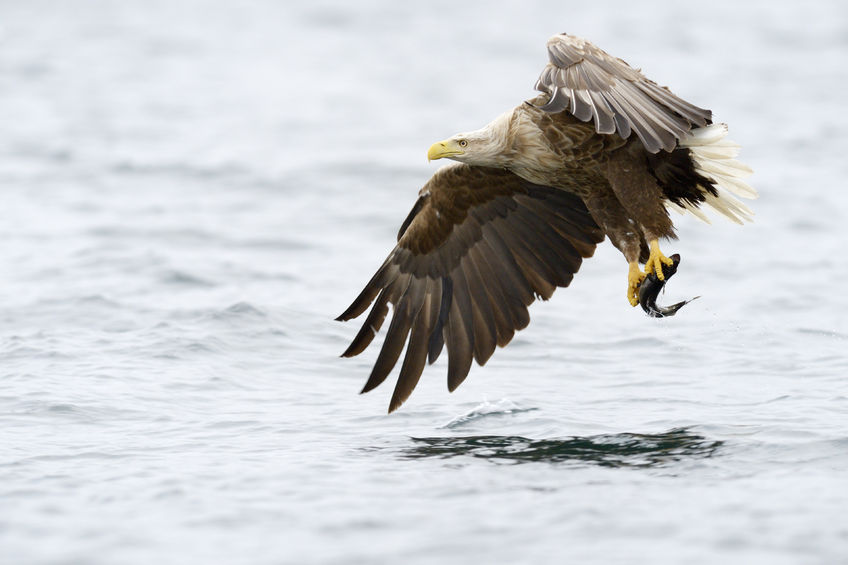
A survey has been launched to gather farmers' views on sea eagle releases following the release of the birds in the Isle of Wight.
White-tailed sea eagles were released in mid-August with six young birds sourced from Scotland’s population.
Sheep farmers initially opposed the release on the grounds that the widely reported decline in biodiversity and species abundance will result in the birds being driven to predate on lambs.
But now the licence has been granted for the release of the birds, the National Sheep Association (NSA) has agreed to work with the project team and Natural England.
All groups are looking to help mitigate problems and to try to identify harmonious regulatory and practical approaches.
NSA Chief Executive, Phil Stocker said: “While this release may currently be considered a local event, if successful it could result in sea eagles being widespread across the UK with no real discussion or engagement with the farming community.
“The birds are already present and growing in number in Scotland following a staged release over the last 40 years, and it is clear that current policy and regulatory approaches are not leading to harmonious relationships.”
Mr Stocker added: “The conditions of the licence stipulate monitoring and evaluation and the project team are keen to broaden this beyond what they are required to do and are very keen to work with the farming community and understand attitudes and experiences.”
It is accepted by those involved in the Isle of Wight release that the birds are unlikely to stay there.
There is a possibility that if the release succeeds, the birds could spread across significant areas of England and even Wales.
NSA is keen to engage with sheep farmers across the country to gather views on the white-tailed sea eagle on the basis that the birds should not end up as a resident species across the in the UK without proper consultation.
“Although the licence has already been granted and the release has gone ahead the very localised consultation and engagement process being done on the island and surrounding areas is not sufficient when the spread of these birds will go much further,” Mr Stocker said.
The recent release follows the trial of laser beam technology in Scotland as a method to deter the birds from kidnapping lambs.
